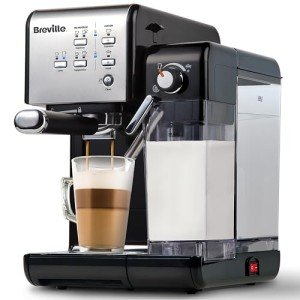The World of High-Quality Espresso Machines: A Comprehensive Guide
Espresso has actually become a precious drink among coffee lovers worldwide, understood for its abundant taste, intense fragrance, and versatility. The heart of an excellent espresso lies in the machine used to brew it. High-quality espresso machines are developed to provide the perfect shot, making them a necessary investment for coffee fans. Bean To Cup Espresso Machines out various kinds of high-quality espresso machines, their functions, maintenance tips, and answers to often asked questions.
Types of High-Quality Espresso Machines
High-quality espresso machines fall under several categories, dealing with various preferences, ability levels, and spending plans. The main types consist of:
| Type of Machine | Description | Suitable User |
|---|---|---|
| Manual Espresso Machines | Needs user ability to control extraction and pressure. Uses the most control over the developing process. | Experienced baristas and enthusiasts |
| Semi-Automatic Machines | Combines manual operation with automation. Users control the grind and tamping, while the machine handles water dispersion. | Intermediate users |
| Automatic Espresso Machines | Automate the brewing procedure, enabling programmable brewing times and temperature levels. | Casual coffee drinkers |
| Super-Automatic Machines | Have integrated mills and are totally automated, handling everything from grinding to developing and steaming. | Users seeking convenience |
| Commercial Espresso Machines | Designed for high volume use in cafes and dining establishments, providing durability and speed. | Company owner |
Comprehensive Overview of Each Type
Manual Espresso Machines
- Pros: Complete control over the developing process; can produce extraordinary quality espresso.
- Cons: Requires substantial ability; time-consuming.
Semi-Automatic Machines
- Pros: Balanced control, mixing manual and automatic procedures; remarkable quality espresso is still attainable.
- Cons: Requires some understanding and experience to master.
Automatic Espresso Machines
- Pros: User-friendly; decreases the finding out curve while still producing high-quality espresso.
- Cons: Still requires some understanding of coffee-making fundamentals.
Super-Automatic Machines
- Pros: Maximal convenience; little ability required; suitable for people or families who desire coffee without hassle.
- Cons: Higher price point; may lack the fine-tuning abilities of manual machines.
Commercial Espresso Machines
- Pros: Built for durability and efficiency; typically includes features for high-volume turns.
- Cons: Expensive; might be overkill for home use.
Secret Features to Consider
When looking for a high-quality espresso machine, a number of key functions ought to be taken into consideration:
- Pressure and Pump Type: Look for machines with a minimum of 9 bars of pressure, which is necessary for extracting the very best flavor from coffee beans.
- Boiler Type: Single, double, and heat exchanger boilers each impact how the machine carries out and the speed of brewing.
- Construct Quality: High-quality products such as stainless steel are preferable for durability and aesthetics.
- Relieve of Use and Cleaning: Some machines need comprehensive cleansing, while others are developed for easy maintenance.
- Temperature Control: Consistent temperature is vital; think about machines with PID controllers for exact control.
Benefits of High-Quality Espresso Machines
Investing in a high-quality espresso machine provides a multitude of advantages:
- Superior Quality: High-end machines enable for higher control, leading to tastier espresso.
- Sturdiness: Built to last, quality machines require less repair work and replacements.
- Modification: Users can enjoy a customized experience by adjusting grind size, shot timing, and other settings.
- Increased Convenience: Automatic and super-automatic options permit enthusiasts to delight in espresso with very little effort.
Maintenance and Care for High-Quality Espresso Machines
To keep an espresso machine functioning optimally, regular upkeep is important. Here are pointers for preserving a high-quality espresso machine:
Descale Regularly:
- Use a descaling solution every couple of months to avoid buildup of minerals from water, which can affect taste and efficiency.
Clean the Brew Group:
- For machines with a removable brew group, clean it frequently to guarantee a tidy extraction.
Change Water Filters:
- Use a water filter and change it as required to reduce pollutants in your developing water.
Daily Cleanings:
- Rinse the portafilter and group head after each use to avoid oil buildup.
Watch on the Parts:
- Monitor seals, gaskets, and other parts for wear and tear and change them as needed.
Often Asked Questions (FAQs)
1. What is the very best espresso machine for novices?
For novices, a semi-automatic machine often provides a great balance of use and control, enabling users to discover the skills necessary for making great espresso.
2. Are super-automatic machines worth the investment?
Yes, for those who prioritize convenience and ease over control, super-automatic machines can be a worthwhile investment, particularly for households or hectic experts.
3. Just how much should I expect to spend on a high-quality espresso machine?
High-quality espresso machines range considerably in rate, with manual machines beginning at a few hundred dollars, while super-automatic or commercial machines can exceed a number of thousand.
4. Can I make other coffee drinks with an espresso machine?
Yes, numerous espresso machines have steam wands or accessories that enable users to produce lattes, coffees, and more.
5. For how long do espresso machines normally last?
With correct upkeep, high-quality espresso machines can last over a decade, making them a long-lasting financial investment in your coffee pleasure.
High-quality espresso machines yield a transformative coffee experience, whether delighted in in the house or in a commercial setting. By comprehending the types readily available, their features, and the upkeep required to keep them running efficiently, customers can make educated decisions that elevate their coffee-drinking experience.

